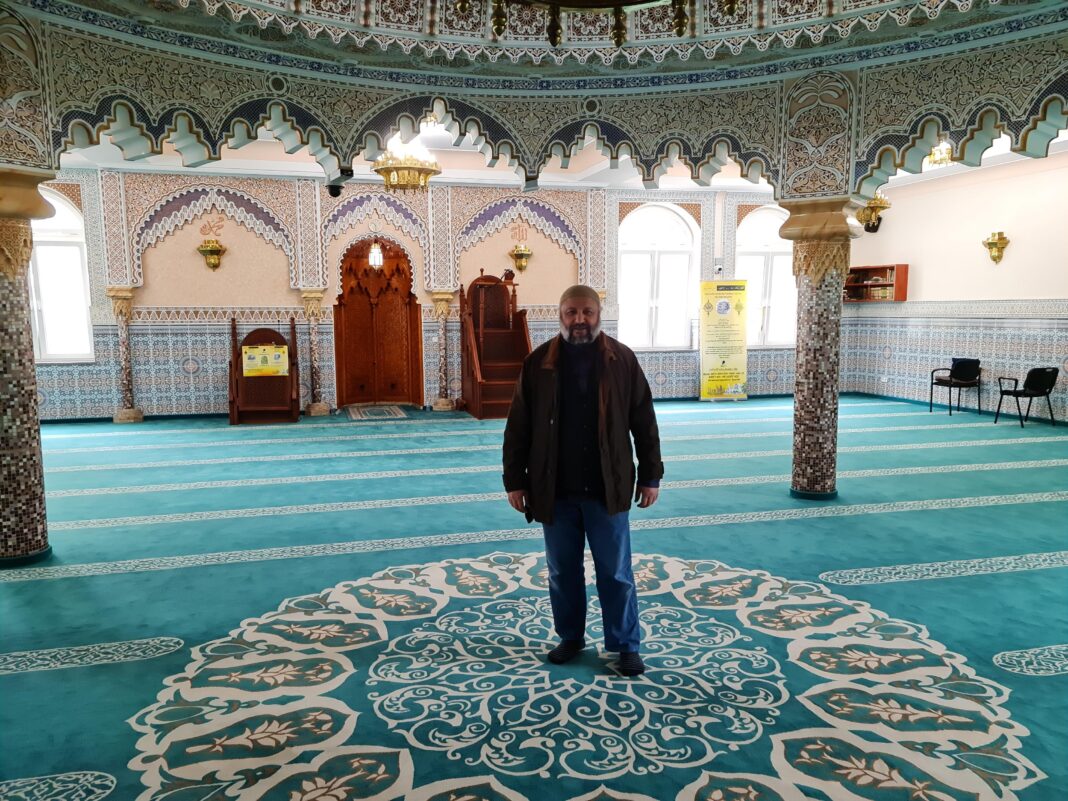FRANFURT: Since the outbreak of the war in Ukraine millions have fled the country, many of them people from the Middle East.
A mosque in the German city of Frankfurt is doing what it can to provide them with a happy Ramadan.
Abu Bakr Mosque lies in the Hausen quarter, and is one of about 50 mosques in Frankfurt. Since it was built and inaugurated in 2007, it has seen several crises.
Mohamed Seddadi, 51-year-old German Moroccan who is the mosque’s administrator, remembers them all. He faced its first crisis after the 9/11 attacks.
Seddadi and his colleagues had finally received the license to build the mosque a year before. Now they were unsure if they should build it at all due to rising Islamophobia.
“Then local politicians, among them the mayor, visited us and told us that now we have to build it more than ever,” he told Arab News. “They gave us comfort.”
Seddadi came to Frankfurt as a student in 1990. In 1992, he joined a group of Muslim students who would regularly meet for discussions and prayer. He had tried several other Muslim groups before but found none of them appealing.
“This one had no national boundaries so I felt just at home,” he said. “Faith shouldn’t have any national boundary at all.”
It was not just faith but also loyalty to Germany that Seddadi considered a necessity. “I love this country and its freedom. It’s my home.”
It was a long time before the foundation for a mosque building was laid. In 1996, the group bought an estate in Hausen where the faithful would pray in the building of a former car repair shop.
“We had two major goals at the time: To collect donations to build a mosque, and to get to know the neighborhood,” Seddadi said.
Neighbors of all faiths were regularly invited to join meals during Islamic festivities. “It’s important to us that we’re good neighbors.”
The building — comprising two storeys with room for more than 1,000 people to pray — was finished and inaugurated in 2007.
Two imams, from Egypt and Morocco, lead the prayers and hold sermons. Seddadi is hoping for a third, German, imam. “I’d like to have a German imam who was born, raised and educated here,” he said.
In the basement, there is a restaurant serving Middle Eastern and North African dishes. “It’s open to everyone.”
When COVID-19 hit in 2020, the mosque faced another crisis just before Ramadan as its prayer rooms could not run at full capacity.
With both the worries of community members and the need for spiritual guidance rising, Seddadi and both imams would receive about 30 phone calls a day.
The restaurant remained closed, but Seddadi and his colleagues began a new approach: “We’d deliver the menus or offer iftar meals to go.”
The most recent crisis has been the war in Ukraine. For Seddadi and his colleagues, it came as a surprise.
“We never would’ve thought that it could get that serious,” he said. “With a war this close, we’re needed.”
A special meeting of the members of nine mosques in Frankfurt was held. Its participants made several decisions to come to the aid of those who require it.
Since the outbreak of the war, more than 5 million refugees have left Ukraine, with more than 360,000 coming to Germany.
Many of those are from the Middle East and North Africa as Ukraine has a community of tens of thousands from the region.
Seddadi strives to provide them with whatever is possible so they can have a happier Ramadan — just as every year, the kitchen staff of the mosque prepare and cook meals for those in need.
The meals are either directly delivered to the refugee camps in town, or can be picked up by refugees in front of the mosque. To do that, Seddadi and his colleagues closely coordinate with the management of the camps.
To meet these goals, the kitchen staff must prepare 150 meals a day, a number that stretches them to their limits.
“It’s difficult,” Seddadi said. “But we can’t reject the request of anyone who is in need.” Volunteers from the neighborhood, including non-Muslims, also help.
The mosque’s openness that Seddadi values so much is evident during Ramadan as staff deliver menus to non-Muslims from Ukraine as well. “The concept of iftar and charity is that anyone in need will get something to eat,” Seddadi said.
As the war in Ukraine drags on, he has only one wish: “It should stop as soon as possible. The pictures I see and the stories I hear are just unbearable.”




